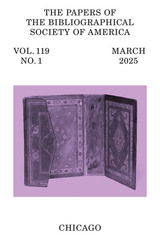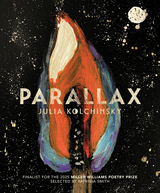7 start with U start with U
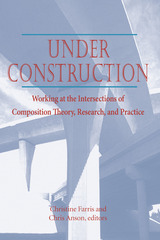
Few composition scholars two decades ago would have imagined the rate at which their field is now developing, expanding beyond its boundaries, creating new alliances, and locating new sites for research and generation of knowledge. In their introduction to this volume, Farris and Anson argue that, faced with a welter of competing models, compositionists too quickly dichotomize and dismiss.
The contributors to Under Construction, therefore, address themselves to the need for commerce among competing visions of the field. They represent diverse settings and distinct points of view, but their over-riding interest is in promoting a view of the field that values interaction and mutual development above dogmatics and isolation.

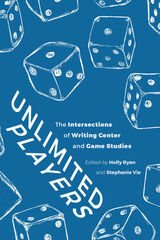
The collection opens with theoretically driven chapters that approach writing center work through the lens of games and play. These chapters cover a range of topics, including considerations of identity, empathy, and power; productive language play during tutoring sessions; and writing center heuristics. The last section of the book includes games, written in the form of tabletop game directions, that directors can use for staff development or tutors can play with writers to help them develop their skills and practices.
No other text offers a theoretical and practical approach to theorizing and using games in the writing center. Unlimited Players provides a new perspective on the long-standing challenges facing writing center scholars and offers insight into the complex questions raised in issues of multimodality, emerging technologies, tutor education, identity construction, and many more. It will be significant to writing center directors and administrators and those who teach tutor training courses.
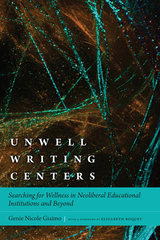
The book is broken into sections based on journeying: searching for wellness, finding wellness, and imagining a “well” future that includes a sustainable model of writing center work. Each chapter begins with a personal narrative about wellness issues in writing centers, including the author’s experiences in and responses to local emergencies. She shares findings from a longitudinal assessment study on non-institutional interventions in writing centers and provides resources for administrators to create more ethical "well" writing centers. The book also includes an appendix of training documents, emergency planning documents, and several wellness-specific interventions developed from anti-racist, anti-neoliberal, and organizational theories.
Establishing the need for a field-specific response to the austerity-minded eruption of wellness-focused interventions in higher education, Unwell Writing Centers is a critical text for graduate students and new directors that can easily be applied in workplaces in and outside of higher education.

With the advent of easy-to-use websites, ordinary people have become internet writers, disseminating their texts to large audiences. Social media sites enable writers’ audiences to communicate back to the them, instantly and often. Even professional writers work within interfaces that place comments adjacent to their text, privileging the audience’s voice. Thus, writers face the prospect of attending to their writing after they deliver their initial arguments. Update Culture and the Afterlife of Digital Writing describes the conditions that encourage “published” texts to be revisited. It demonstrates—through forty case studies of Amazon reviewers, redditors, and established journalists—how writers consider the timing, attention, and management of their writing under these ever-evolving conditions.
Online culture, from social media to blog posts, requires a responsiveness to readers that is rarely duplicated in print and requires writers to consistently reread, edit, and update texts, a process often invisible to readers. This book takes questions of circulation online and shows, via interviews with both writers and participatory audience members, that writing studies must contend with writing’s afterlife. It will be of interest to researchers, scholars, and students of writing studies and the fields of rhetoric, communication, education, technical communication, digital writing, and social media, as well as all content creators interested in learning how to create more effective posts, comments, replies, and reviews.
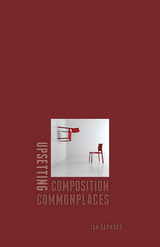
In Upsetting Composition Commonplaces, Ian Barnard argues that composition still retains the bulk of instructional practices that were used in the decades before poststructuralist theory discredited them. While acknowledging that some of the foundational insights of poststructuralist theory can be difficult to translate to the classroom, Barnard upends several especially intransigent tenets that continue to influence the teaching of writing and how students are encouraged to understand writing.
Using six major principles of writing classrooms and textbooks—clarity, intent, voice, ethnography, audience, and objectivity—Barnard looks at the implications of poststructuralist theory for pedagogy. While suggesting some evocative poststructuralist pedagogical practices, the author focuses on diagnosing the fault lines of composition's refusal of poststructuralism rather than on providing "solutions” in the form of teaching templates.
Upsetting Composition Commonplaces addresses the need to more effectively engage in poststructuralist concepts in composition in an accessible and engaging voice that will advance the conversation about relations between the theory and teaching of writing.
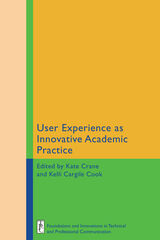
READERS
Browse our collection.
PUBLISHERS
See BiblioVault's publisher services.
STUDENT SERVICES
Files for college accessibility offices.
UChicago Accessibility Resources
home | accessibility | search | about | contact us
BiblioVault ® 2001 - 2025
The University of Chicago Press




